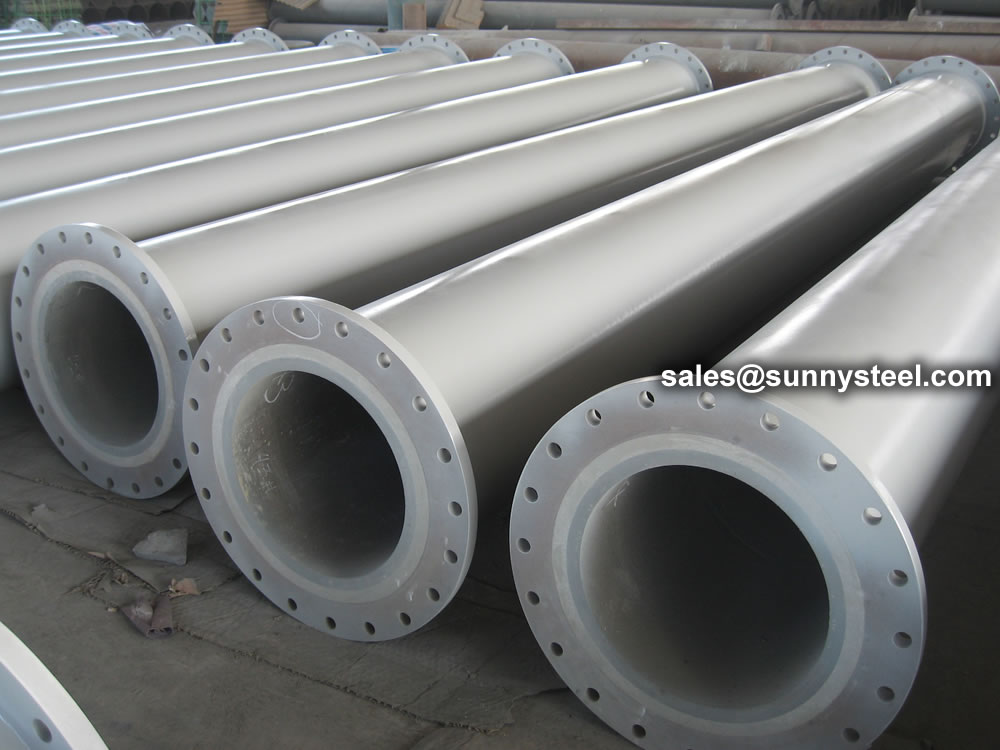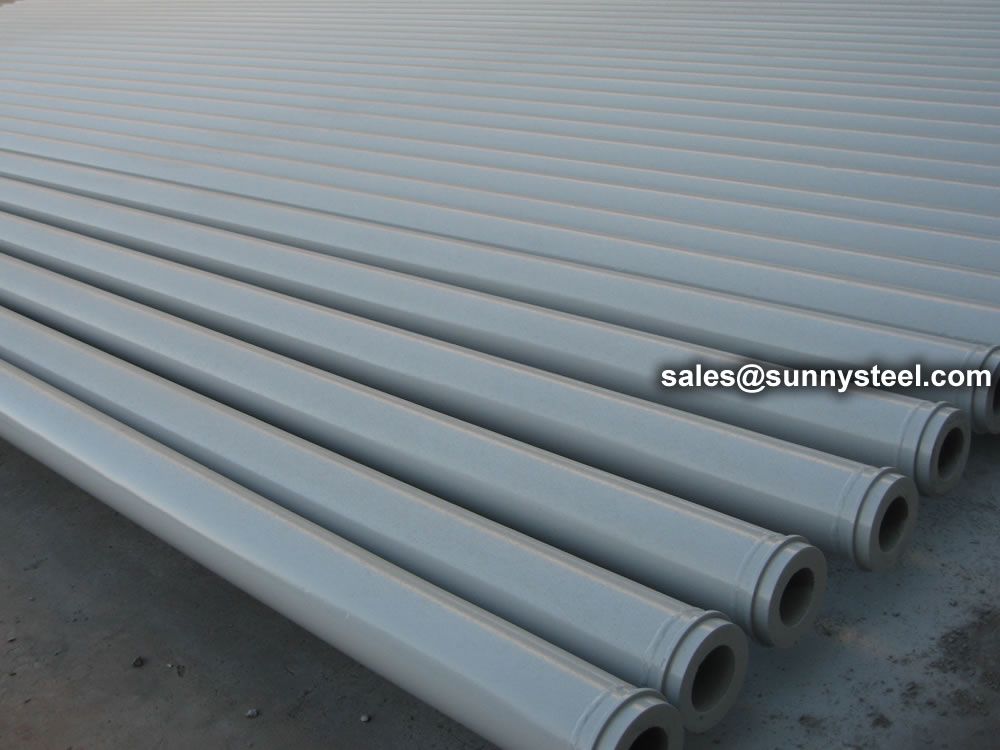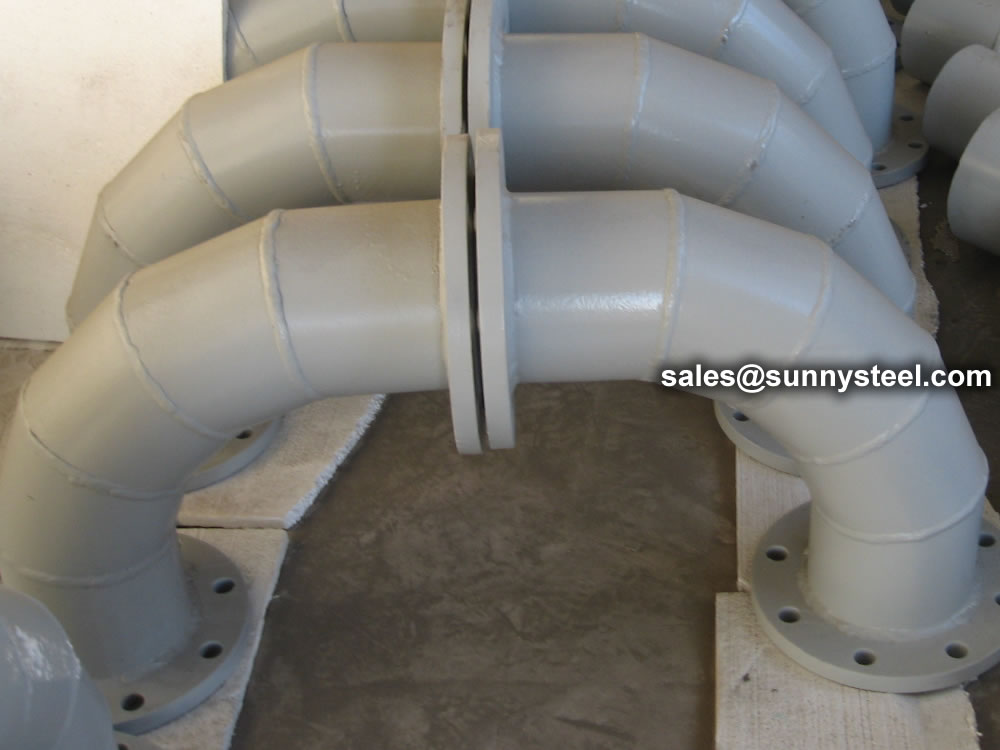Fused Cast Basalt Linings
Fused cast basalt linings are highly resistant to abrasion and corrosion, making them ideal for use in pipelines and other industrial applications where durability is key.
Japanese steel plants often require the use of basalt lined pipes due to the demanding nature of their operations.
Download PDFThe Japanese steel plant uses our cast stone composite pipe as a water quenching pipe and a mud discharge pipe. This case includes composite straight pipes, composite elbows and various special-shaped parts.
Japanese steel plants are renowned for their commitment to excellence and cutting-edge technology. To maintain their competitive edge, these plants require robust and durable piping solutions that can withstand the harsh conditions of the steel industry. Basalt lined pipes offer a promising solution, providing exceptional resistance to abrasion, corrosion, and high temperatures.
Basalt lined pipes refer to pipes that are internally lined with basalt, a volcanic rock known for its excellent resistance to corrosion, erosion, and high temperatures. These pipes are commonly used in various industries, including steel plants.
Japanese steel plants often require the use of basalt lined pipes due to the demanding nature of their operations. Steel production involves extreme temperatures, highly corrosive environments, and abrasive materials. Therefore, the use of basalt lined pipes helps to ensure the longevity and efficiency of the piping systems within the plants.
Here are some key reasons why Japanese steel plants may choose basalt lined pipes:
Overall, the use of basalt lined pipes in Japanese steel plants offers numerous benefits, including increased durability, reduced maintenance costs, improved material flow, and enhanced safety in dealing with corrosive and high-temperature environments.



玄武岩の内張りパイプは、高温や高圧な環境下で使用されるためのパイプです。玄武岩は、溶岩が冷えて固まった火山岩であり、非常に耐久性があります。そのため、内張りパイプとして使用することで、パイプの耐久性や耐火性を向上させることができます。
玄武岩の内張りパイプは、主に石油精製プラントや鉱山などの産業施設で使用されます。これらの施設では、高温の流体や腐食性のある物質を扱うため、通常のパイプでは耐えられない状況があります。そこで、玄武岩の内張りパイプが使用されることで、耐火性や耐腐食性を確保し、安全な運用が可能となります。
また、玄武岩の内張りパイプは、内部の流体の腐蝕や汚染を防ぎ、パイプの寿命を延ばす効果もあります。さらに、玄武岩は断熱性にも優れているため、内張りパイプを通じての熱伝導を抑えることができ、エネルギー効率の向上にも寄与します。
しかし、玄武岩の内張りパイプは製造コストが高いため、一般的なパイプに比べて導入コストが高くなる傾向があります。そのため、使用する産業施設の条件や経済性などを考慮して適切なパイプ材料を選択する必要があります。

Discover the benefits of using basalt lined pipes in Japanese steel plants. Learn how these pipes increase efficiency, reduce wear and tear, and contribute to a sustainable production process.
Basalt lined pipes are specialized pipelines used in the steel manufacturing process to transport abrasive materials, hot gases, and molten metal. These pipes are lined with a protective layer of basalt, a volcanic rock known for its exceptional durability and heat resistance. The basalt lining acts as a barrier, shielding the inner surface of the pipes from abrasion and corrosion, thereby extending their lifespan and improving overall efficiency.
Basalt is an igneous rock formed from the rapid cooling of lava. It is predominantly composed of minerals such as plagioclase feldspar, pyroxene, and olivine. The unique composition of basalt gives it excellent mechanical and thermal properties, making it ideal for lining pipes in high-temperature and abrasive environments.
Basalt lined pipes offer several significant advantages that contribute to the enhanced performance of Japanese steel plants. These advantages include:
Blast furnaces play a critical role in the steel manufacturing process, and the smooth operation of these furnaces relies on the efficient transportation of hot gases and raw materials. Basalt lined pipes ensure the integrity of the pipelines, preventing leaks and minimizing heat loss, thereby optimizing blast furnace performance.
Rolling mills are essential in shaping and forming steel products. However, the constant exposure to moisture and chemicals in rolling mill environments can lead to corrosion and premature pipe failure. Basalt lined pipes offer a reliable solution by providing high corrosion resistance, reducing maintenance costs, and improving the longevity of the pipelines.
Electric arc furnaces are vital for melting and refining steel. The extreme temperatures and abrasive materials involved in this process demand highly durable and heat-resistant pipelines. Basalt lined pipes facilitate the smooth and efficient flow of materials, contributing to the overall productivity of electric arc furnaces.

When you partner with Sunny Steel, you can stop worrying about meeting deadlines thanks to our responsive and timely service. You'll also say goodbye to unnecessary shopping around. Instead, you'll get white glove service from an expert who understands your needs and can get you the materials you need quickly.
